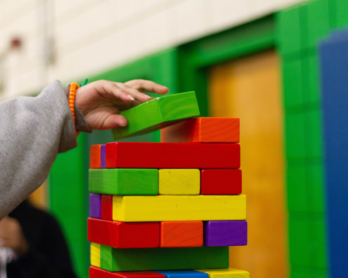5 Tips for Staging a Successful Intervention
Staging a successful intervention is no longer fodder for television shows – it’s a real life problem that millions of family members have to deal with. Here are 5 tips for staging a loved one’s intervention that urges the addict to get the help they need.
An intervention for a loved one is never something one looks forward to doing. But, if put together right, the healing that it can produce can mean big things for your family and your troubled loved one.
Addiction is a serious and growing problem in the United States. If you have an addict in your family that needs help and has been reluctant to get it, read on. We’ll discuss what is needed in staging a successful intervention.
1. Gather Trusted Friends and Family
The most important aspect of a proper intervention is the people involved. You want a group of people present at the intervention that your loved one trusts and respects. You want to make a point with the number of people present, but not overwhelm your loved one, so between three and ten people is recommended.
Those with an individual account about or strong concerns for the addicted loved one should be included. Anyone who has enabled the addictive behavior should be invited.
2. Know What To Say In Advance
A firm hand is needed to talk to a loved one about rehab. Having intervention participants meet up beforehand and practice what they are planning to say can make the actual intervention run much smoother, and gives participants a chance to better formulate what they want to say.
This meeting is a great time to agree on common goals, which may vary on a case by case basis. If you’re trying to get your loved one to visit a rehab center such as A Better Today Recovery Services, this is the time to make sure everyone’s contributions are steering the conversation to that goal.
3. Choose The Right Time and Location
You should select a time where your loved one has time and is free of other commitments. This can ensure a smaller amount of distractions during the intervention, and ensure that your loved one will be present.
Selecting a non-threatening environment, possibly something familiar and comfortable can help make your loved one feel less attacked. Your goal should not be to make your loved one uncomfortable about their behavior but move them gently towards change. Picking a friendly location can be a big contribution to this.
4. Avoid Conflict or Confrontation
The tone set by those speaking at an intervention can have a big impact on whether the message is heard and acted upon.
Avoiding accusatory stances and approaching the conversation from a place of love and concern can prevent your loved one from becoming defensive or closed-off. A closed-off individual is less likely to listen to advice or want to change, and a fight-or-flight impulse may be activated. Giving the person some respect and love can make all the difference.
5. Stick to the Goal
Don’t lose track of your goal over the course of the intervention. Make the desired change you want your loved one to take very clear, and gently continue to press the point until they agree to take this action.
While open conversation can be helpful and illuminating, an intervention cannot be a success unless concrete action is taken by your loved one. An action is the only way to help prevent relapse.
Staging A Succesful Intervention
Staging a successful intervention takes a certain amount of care, planning, and forethought. But put together right, an intervention can make a huge difference in the life of a loved one struggling with addiction.
Check out our blog for more helpful tips and tricks on life’s many struggles.












